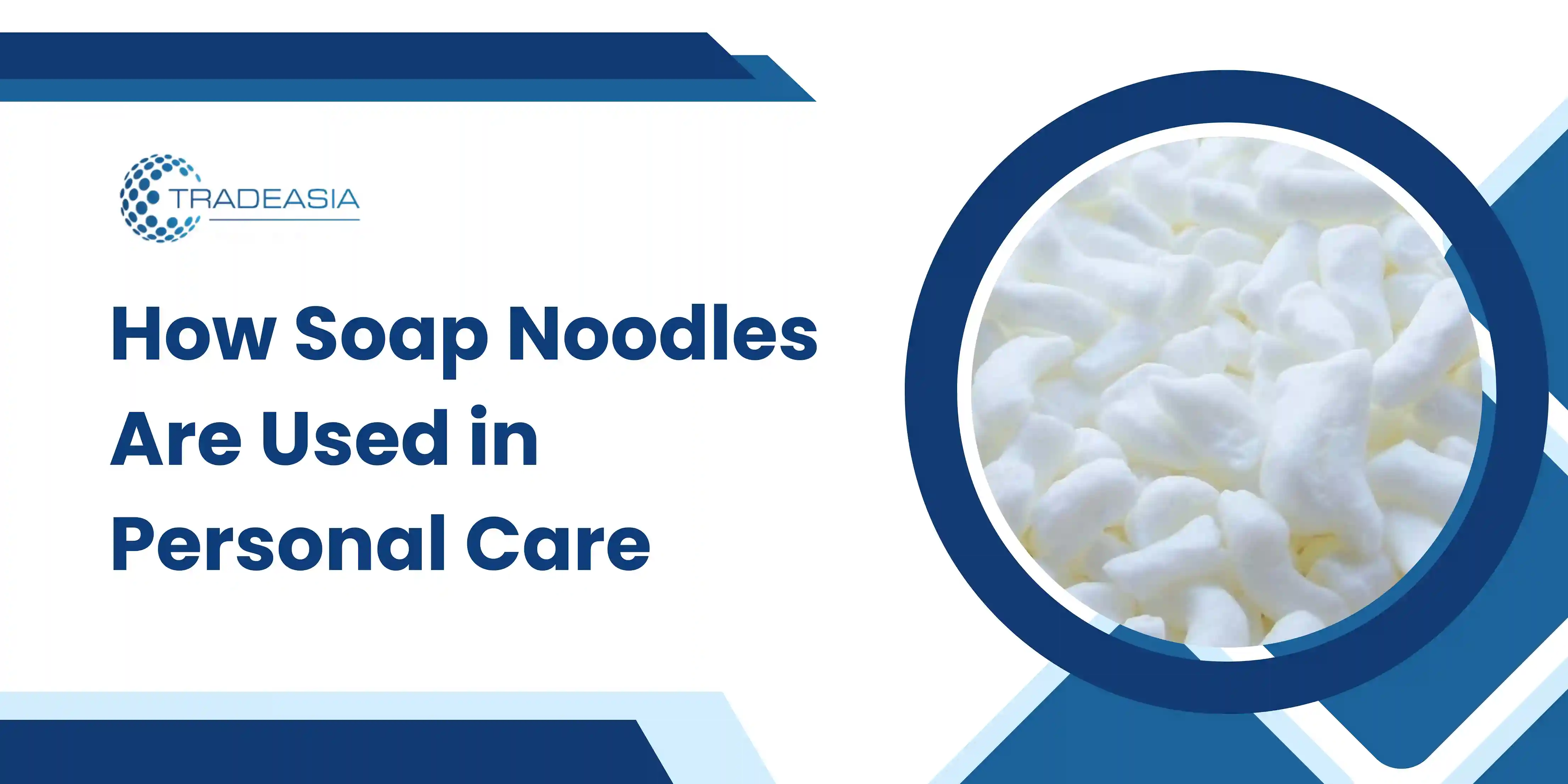In recent years, hygiene awareness has significantly increased, leading to a rising demand for anti-bacterial soap. With concerns about viruses, bacteria, and overall health safety, anti-bacterial soap has become an essential household and industrial product. The production of high-quality anti-bacterial soap depends on premium raw materials, one of which is industrial soap noodle. Soap noodles serve as the fundamental ingredient in soap manufacturing, providing the necessary structure and cleansing properties. They allow manufacturers to formulate various types of soaps, including those with anti-bacterial properties. In this article, we will explore how industrial soap noodle plays a crucial role in the production of anti-bacterial soap, its benefits, formulation, manufacturing process, and future market trends.
What is Industrial Soap Noodle?
Soap noodles are the primary raw material used in the production of solid soap bars. These noodles are manufactured from vegetable oils such as palm oil, coconut oil, or a combination of both. Some soap noodles are also derived from animal fats, depending on the required soap characteristics.
Industrial soap noodles come in different grades, including translucent, opaque, and white soap noodles, which can be customized for various applications. Manufacturers use these soap noodles as a base ingredient, adding antibacterial agents, fragrances, and other additives to create specialized soaps. Soap noodles are valued for their versatility, consistency, and ease of formulation, making them an essential component in anti-bacterial soap production.
The Growing Demand for Anti-Bacterial Soap
The demand for anti-bacterial soap has surged due to increased health awareness and hygiene concerns. Several key factors contribute to this growing demand:
-
Public Health Awareness: The COVID-19 pandemic highlighted the importance of personal hygiene, leading to increased sales of anti-bacterial soaps worldwide. People are now more conscious of the importance of handwashing with effective anti-bacterial products.
-
Industrial and Medical Usage: Hospitals, clinics, and food-processing industries require anti-bacterial soaps to maintain strict hygiene standards. The use of effective cleansing agents is crucial in preventing the spread of infections.
-
Government Regulations: Health organizations and regulatory bodies have promoted the use of anti-bacterial hygiene products. Countries with strict sanitation policies require food handlers, healthcare workers, and manufacturing employees to use anti-bacterial soap.
-
Consumer Preference for Hygiene Products: The demand for antibacterial and germ-fighting soaps has grown among everyday consumers, especially in urban areas where hygiene awareness is high.
With these factors driving demand, soap manufacturers are increasingly focusing on high-quality soap noodles to create anti-bacterial soaps that meet both consumer and industry standards.
Key Benefits of Using Soap Noodle in Anti-Bacterial Soap
Soap noodles provide several advantages in the production of anti-bacterial soap, making them the preferred choice for soap manufacturers.
1. Consistent Quality
Soap noodles ensure a uniform and consistent texture, hardness, and appearance in the final soap product. This consistency is crucial in maintaining product quality and meeting customer expectations.
2. High Cleansing and Lathering Ability
Soap noodles derived from palm or coconut oil offer excellent foaming and cleansing properties, which are essential in an anti-bacterial soap. The high lathering ability enhances the effectiveness of removing germs and bacteria from the skin.
3. Customizable Formulation
Manufacturers can easily modify the soap formula by adding anti-bacterial agents such as triclosan, chlorhexidine, or natural extracts like tea tree oil. This flexibility allows companies to produce a variety of anti-bacterial soaps with different strengths and characteristics.
4. Skin-Friendly and Moisturizing
Soap noodles contain natural glycerin, which helps retain skin moisture. Unlike harsh chemical-based soaps, soap noodle-based anti-bacterial soaps can be formulated to be gentle on the skin while still being effective against bacteria.
5. Eco-Friendly and Sustainable
Many soap noodles are vegetable-based, making them an environmentally friendly option. With consumers increasingly preferring sustainable and biodegradable products, soap manufacturers are shifting towards eco-friendly soap noodle formulations.
Soap Noodle Formulation for Anti-Bacterial Soap
A typical formulation for anti-bacterial soap includes the following components:
-
Soap Noodle (80-90%) – Acts as the base ingredient.
-
Anti-Bacterial Agent (1-3%) – Ingredients such as triclosan, chlorhexidine, or essential oils like tea tree oil.
-
Moisturizer (5-10%) – Glycerin, aloe vera, or shea butter to prevent skin dryness.
-
Fragrance (1-2%) – Essential oils or synthetic fragrances to enhance user experience.
-
Colorants (Optional) – Natural or synthetic dyes for aesthetic appeal.
Manufacturing Process of Anti-Bacterial Soap
The production of anti-bacterial soap involves several key steps:
1. Mixing and Blending
Soap noodles are melted and mixed with anti-bacterial agents, moisturizers, and fragrances.
2. Refining and Homogenization
The mixture undergoes refining to ensure a smooth and consistent texture.
3. Extrusion and Cutting
The refined soap is extruded into a continuous bar and then cut into individual soap bars or molded into different shapes.
4. Drying and Packaging
The final soap bars are dried, wrapped, and packed for distribution.
Quality Standards and Regulations
To ensure safety and effectiveness, anti-bacterial soap must comply with global and local regulations:
-
FDA (U.S.) – Approves antibacterial soap formulations.
-
Badan POM (Indonesia) – Regulates personal care products in Indonesia.
-
ISO & GMP Standards – Ensure high-quality production and safety.
Market Trends and Future Prospects
The anti-bacterial soap market is growing due to:
-
Increased hygiene awareness and health concerns.
-
Expanding demand in developing countries like Indonesia and India.
-
A shift towards natural and eco-friendly anti-bacterial soaps.
-
Advancements in new antibacterial ingredients and sustainable formulations.
Conclusion
Industrial soap noodles play a vital role in anti-bacterial soap production. Their versatility, cleansing ability, and sustainability make them essential for manufacturers looking to create high-quality and effective hygiene products.
For more details on soap noodles and their applications, visit:
? Soap Noodles by Chemtradeasia
? Soap & Detergent Industry

Leave a Comment